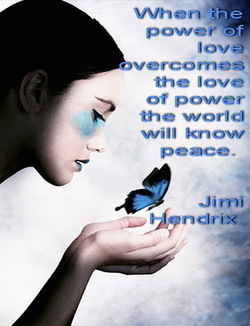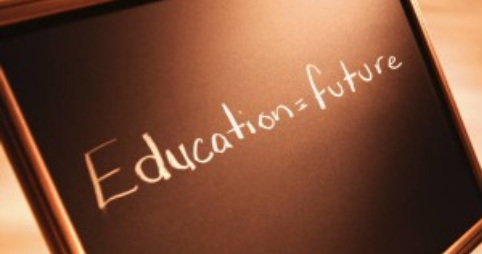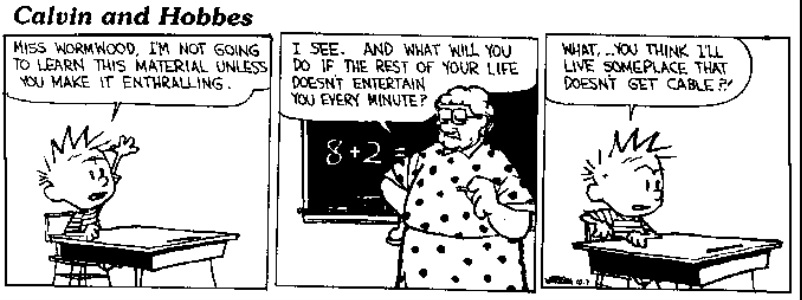____________________________________________________________________________________________________
Genocide: Education and Prevention
Genocide: Education and Prevention
"Education is considered one of the most effective methods of bringing forth the much needed positive change in society. Education is used in many scenarios and its existence in many cases is necessary especially in regions struck by atrocities and genocide in order to create and maintain a positive and fruitful environment. The past century has been plagued by the crime of genocide and since the international community’s first experience with the crime, world leaders have sworn to prevent it from ever happening again. Genocide and human rights education is the single most important method of prevention. Educating present day and future policy makers and other professionals would indubitably create a tremendous amount of awareness about the nature and dimensions of the crime and what it is that the international community requires in order to defend those vulnerable to the crime of genocide".
Dr. Dikran Abrahamian, Fall 2009
Gencoide Prevention Through Education
Dr. Dikran Abrahamian, Fall 2009
Gencoide Prevention Through Education
__________________________________________________________________________________________________________________
Genocide: Analysis and Responsibility
“It is imperative that a greater understanding of the psychological, cultural, political, and societal roots of human cruelty, mass violence, and genocide be developed. We need to continue to examine the factors which enable individuals collectively and individually to perpetrate evil/genocide and the impact of apathetic bystanders as fuel for human violence. While an exact predictive model for mass violence/human cruelty is beyond the scope of human capability, we have an obligation to develop a model that highlights the warning signs and predisposing factors for human violence and genocide. With such information, we can develop policies, strategies, and programs designed to counteract these atrocities”.
Linda Woolf, Spring 2011
Professor of Psychology, Webster University
Linda Woolf, Spring 2011
Professor of Psychology, Webster University

"When the power of love overcomes the
love of power the world will know peace"
~Jimi Hendrix
____________________________________________________________
Genocide: A Global Issue
"Libya intervention shows a global shift in thinking about mass atrocities. Libya marks a significant global shift toward thinking about and the prevention of mass atrocities. The decision to act in Libya followed reflection in the international community about the failures to prevent genocide in the 1990s. Over the past 20 years, new policies and mechanisms by civil society and governments that strengthen our collective capacity to prevent and respond to genocide include the creation of an office of genocide prevention at the United Nations; a new International Criminal Court in The Hague to try perpetrators of the most heinous human rights abuses; the adoption of a doctrine of “Responsibility to Protect” at the United Nations (invoked in Libya); and steps by individual governments to strengthen their ability to detect and react to potential genocide".
Michael Abramowitz, 2011
Director of the Committee on Conscience (Prevention of Genocide)
The Washington Post, Editor
Michael Abramowitz, 2011
Director of the Committee on Conscience (Prevention of Genocide)
The Washington Post, Editor
____________________________________________________________________________________________________
Genocide: Classroom Approach
Living in a fast-paced, consumer driven world with depleting resources, issues concerning human rights and the denial of basic freedoms are often neglected. In order for students to understand and care about the world and its future, they need to be exposed to and educated about the number of atrocities that exist in it, and begin to recognize these atrocities as priorities on the global agenda.
Students need to learn how to examine the question of what can be done to prevent the spread of human cruelty, mass violence, and genocide, and to defend basic human rights.
Students need to recognize the perpetration of genocide and other crimes against humanity as current issues and take an active role in spreading awareness.
Students need to find a purpose in learning about global issues, and be able to make connections to their own environments.
Students need to engage in a self-inquiry process that allows them to fully explore, discover, connect and grasp the magnitude of these issues.
Students need to be provided with opportunities to apply their education experientially and interactively.
(For course objectives, see syllabus)
Freire’s “problem-posing” education and Farrell’s Process Model each offer instructional strategies that support a course that addresses genocide and mass violence. In Pedagogy of the Oppressed, Freire introduces traditional, controlled education (banking method) and compares this concept to violating human rights. He states that “if people, as historical beings necessarily engaged with other people in a movement of inquiry, did not control that movement, it would be (and is) a violation of their humanity. Any situation in which some individuals prevent others from engaging in the process of inquiry is one of violence” (8). It is clear how banishing democracy in a classroom limits the potential of the students, thus robbing them of being fully human. The violation of human rights is an issue that exists individually and socially every where in the world. Students can find its theme applicable on multiple levels, including their own schooling and current issues of human rights violations at the local and national level.
Students enter my classroom having been exposed to the fundamentals of the Holocaust, but are not aware of its magnitude, and are not familiar with existing forms of genocide and mass violence occurring in foreign countries. Two of my course objectives support problem-posing education as a “revolutionary futurity”:
1.) Becoming familiar with the perpetration of genocide and mass violence in Nazi Germany, (and other modern societies including Darfur, Cambodia, Bosnia, and Rwanda, Guatemala, Sudan, Iraq, Afghanistan, Congo, Tibet).
2.) Examining the question of what can be done to prevent human cruelty, mass violence, and genocide.
Problem-posing education is inquiry based learning that categories education as a process. Reflection and revision of planning, instruction, assessments and individual learning processes demonstrates recognition for change. Evolving lesson plans to be applicable to modern day society is crucial for students to understand cultural existence. High school aged students live in a world where international communication is not only possible, but simple and common. As students face global exposure, they need guidance in becoming actively involved citizens, and in valuing technology as a tool for inquiry and international awareness.
_________________________________________________________________________________________________________________________________
Genocide: Classroom Approach
Living in a fast-paced, consumer driven world with depleting resources, issues concerning human rights and the denial of basic freedoms are often neglected. In order for students to understand and care about the world and its future, they need to be exposed to and educated about the number of atrocities that exist in it, and begin to recognize these atrocities as priorities on the global agenda.
Students need to learn how to examine the question of what can be done to prevent the spread of human cruelty, mass violence, and genocide, and to defend basic human rights.
Students need to recognize the perpetration of genocide and other crimes against humanity as current issues and take an active role in spreading awareness.
Students need to find a purpose in learning about global issues, and be able to make connections to their own environments.
Students need to engage in a self-inquiry process that allows them to fully explore, discover, connect and grasp the magnitude of these issues.
Students need to be provided with opportunities to apply their education experientially and interactively.
(For course objectives, see syllabus)
Freire’s “problem-posing” education and Farrell’s Process Model each offer instructional strategies that support a course that addresses genocide and mass violence. In Pedagogy of the Oppressed, Freire introduces traditional, controlled education (banking method) and compares this concept to violating human rights. He states that “if people, as historical beings necessarily engaged with other people in a movement of inquiry, did not control that movement, it would be (and is) a violation of their humanity. Any situation in which some individuals prevent others from engaging in the process of inquiry is one of violence” (8). It is clear how banishing democracy in a classroom limits the potential of the students, thus robbing them of being fully human. The violation of human rights is an issue that exists individually and socially every where in the world. Students can find its theme applicable on multiple levels, including their own schooling and current issues of human rights violations at the local and national level.
Students enter my classroom having been exposed to the fundamentals of the Holocaust, but are not aware of its magnitude, and are not familiar with existing forms of genocide and mass violence occurring in foreign countries. Two of my course objectives support problem-posing education as a “revolutionary futurity”:
1.) Becoming familiar with the perpetration of genocide and mass violence in Nazi Germany, (and other modern societies including Darfur, Cambodia, Bosnia, and Rwanda, Guatemala, Sudan, Iraq, Afghanistan, Congo, Tibet).
2.) Examining the question of what can be done to prevent human cruelty, mass violence, and genocide.
Problem-posing education is inquiry based learning that categories education as a process. Reflection and revision of planning, instruction, assessments and individual learning processes demonstrates recognition for change. Evolving lesson plans to be applicable to modern day society is crucial for students to understand cultural existence. High school aged students live in a world where international communication is not only possible, but simple and common. As students face global exposure, they need guidance in becoming actively involved citizens, and in valuing technology as a tool for inquiry and international awareness.
_________________________________________________________________________________________________________________________________
_____________________________________________________________________________________________________
Read more about the philosopy and origin of this course:
Class Analysis
Read more about the philosopy and origin of this course:
Class Analysis



